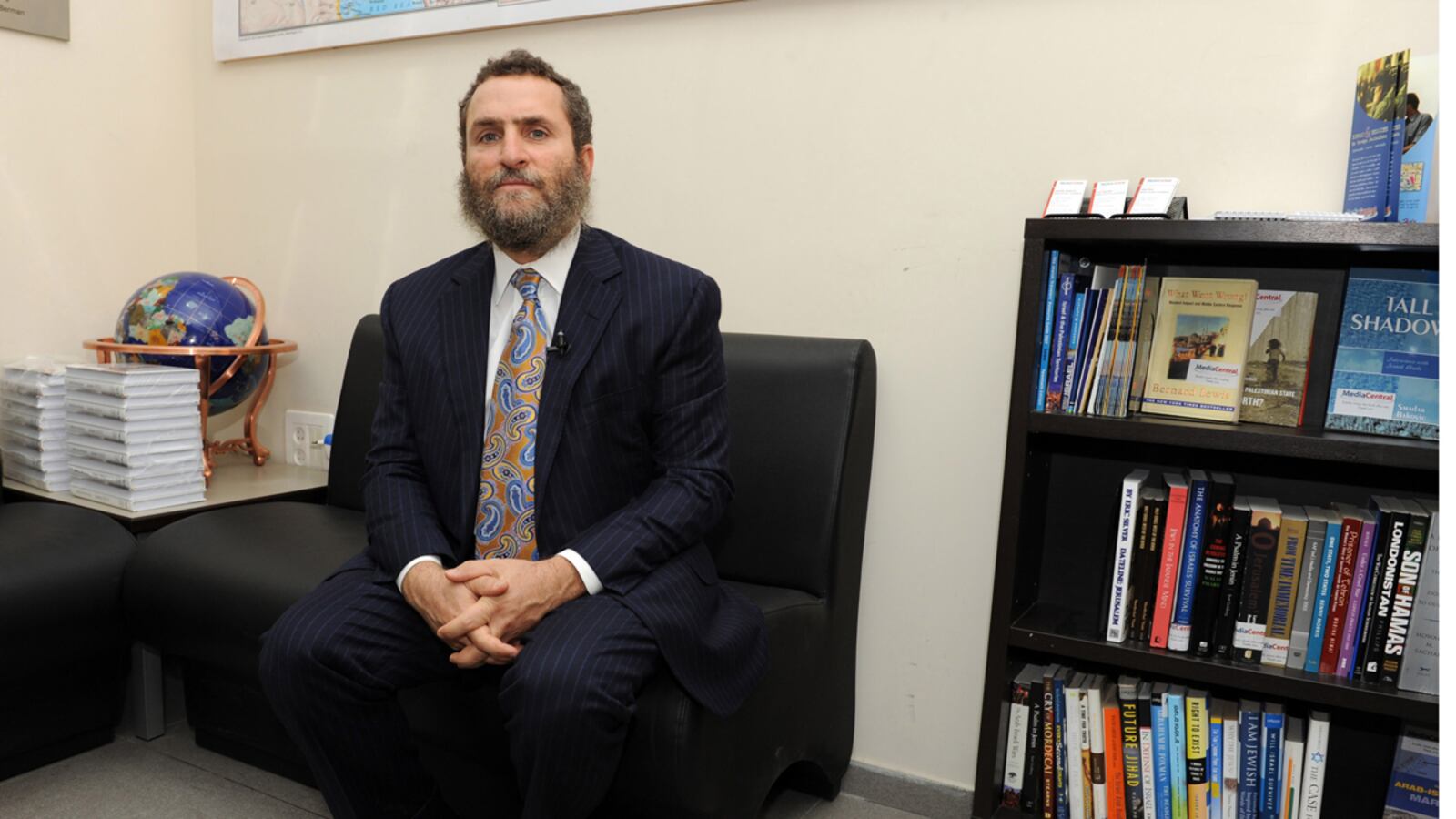Rabbi Shmuley Boteach is like no other Orthodox Jewish rabbi you will ever meet. He hobnobs with celebrities, wears designer suits and opines on cable TV shows about everything from the current cinema to Britney Spears’ suitability as a teen role model. He writes a syndicated column on family values, has been a radio talk-show host, and starred in a reality TV show called “Shalom in the Home.”
Boteach also writes books with decidedly non-Orthodox titles like Kosher Adultery – Seduce and Sin With Your Spouse, The Kosher Sutra and Kosher Sex. As a representative of a strict religion that includes a Jewish code of law explicitly prohibiting oral sex, this rabbi writes frequently about why the act is nearly necessary for a good marriage.
Now Rabbi Shmuley, as he prefers to be called, wants to be a member of the U.S. House of Representatives. The heretofore non-political Boteach (pronounced bo-TAY-akh) has announced he is a Republican candidate for the Ninth Congressional District in New Jersey. His platform mirrors his life’s work: promoting Jewish family values, happy marriage, and a tax-break plan for those seeking marriage counseling (which Boteach himself happens to offer.)
At first blush it would appear Boteach has all the makings of a successful politician: name recognition, an affable ability to communicate, a penchant for self-promotion (he has no fewer than half a dozen Facebook pages, all featuring photos of himself in GQ-like poses, and various official web sites where he sells his books and iTunes downloads of his relationship lectures), and the instinctive sense to change position when it is advantageous to do so. He is a man who is not only at home in the spotlight, he craves it.
The idea that Boteach would like to be a Congressman at this stage in his life raises many questions. Does he truly believe he can win in a decidedly Democratic district, or is this just another self-promotion campaign from the man who famously said that there is an 11th commandment, “Thou shalt do anything for publicity and recognition”? (He would later say he was being sarcastic.)
More important, does he realize that life in Washington as a freshman congressman would be very different than the life he’s led so far, a life primarily funded by his own non-profit, The World: The Values Network?

The 45-year-old Boteach and his wife Debbie, have three homes and nine children. They make their primary residence in the town of Englewood, New Jersey on a $2.6 million property with a stone house and indoor swimming pool. One of his only forays into politics has been an ongoing fight with his town’s planning board to allow a building on his land to be designated as a synagogue. If that were to be granted the Rabbi has said he would sell the property to This World: The Values Network, which he runs out of the Englewood home. The charitable exemption would then save the rabbi all future property taxes which last year totaled $63,393.60.
In contrast, if he were to win a Congressional seat he’d earn $174,000 a year and all outside expenditures would be carefully monitored by House Rules, which strictly prohibit co-mingling of political and outside charity monies. Rabbi Shmuley’s challengers for the Ninth District seat, two long-serving Democrats whose districts were recently pared down to one, are surely already having staff sift through the charity’s books looking for irregularities.
And there’s the lack of status to contend with: Capitol Hill freshmen typically spend at least a year laying low, learning the system and forming alliances – not really this independent Rabbi’s style. And there is an unstated decorum at the Capitol that frowns upon a member’s appearing on, say, cable TV to talk about pop culture. Although Boteach counts House Majority Leader Eric Cantor (R-Va.) among his friends there is no guarantee that he would be able to help him win a committee assignment that would give him a camera-ready cause. Can Rabbi Shmuley be seriously thinking about adopting this very different lifestyle?
On top of this, some have questioned his judgment in various settings, particularly in his most well-known relationship: with Michael Jackson.
One of the Boteach’s 27 books was based on dozens of hours of recordings he made with the King of Pop in 2000 and 2001 for a collaborative book that never materialized. During their cozy period Boteach referred to himself as Jackson’s “spiritual advisor” and they were photographed together often. But the unlikely pair had a severe falling out in 2002. After that Boteach’s once-effusive praise of the entertainer’s humanity and humility was replaced with sharp public criticism. Rabbi Shmuley revealed in several national interviews that he had counseled Jackson not to entertain so many young boys and hinted that his good advice is what ultimately caused Jackson to banish him from the inner circle.
During a 2009 appearance on NBC’s Dateline to promote his book, A Tragic Icon Reveals His Soul in Intimate Conversation, Rabbi Shmuley unapologetically offered up snippets of the private Jackson tapes for public consumption. During the interview he called Jackson “a strange, bizarre man with a Messiah complex” who was “insatiable for attention.” Boteach was roundly criticized by Jackson supporters for his flip-flopped loyalty.
Boteach also once sold excerpts of his book Kosher Sex to Playboy, he appeared at a much-publicized debate on ethics with pornographer Larry Flynt, he hosted Alaskan cruises and overnight camping trips for Jewish singles, and he basked in the colorful nicknames he picked up along the way. The Washington Post called him “Dr. Ruth with a yarmulke.” He began to call himself “America’s Rabbi.” A person who was once close enough to watch the way Rabbi Shmuley operated with his celebrity friends now says, “He’s amazing, like the Jewish Jesse Jackson or Al Sharpton. Whereever there are cameras he moves right in.”
Rabbi Jerry Cutler of Los Angeles does not personally know Boteach but closely watched his friendship with Jackson mature and then disintegrate on the public stage. “I think it was wrong what (Boteach) did,” Cutler said. “But it’s not like Catholicism. Judaism is not a religion where you have to answer to a higher power. … Rabbis do what they want, they do their own thing and are accepted or not.”






